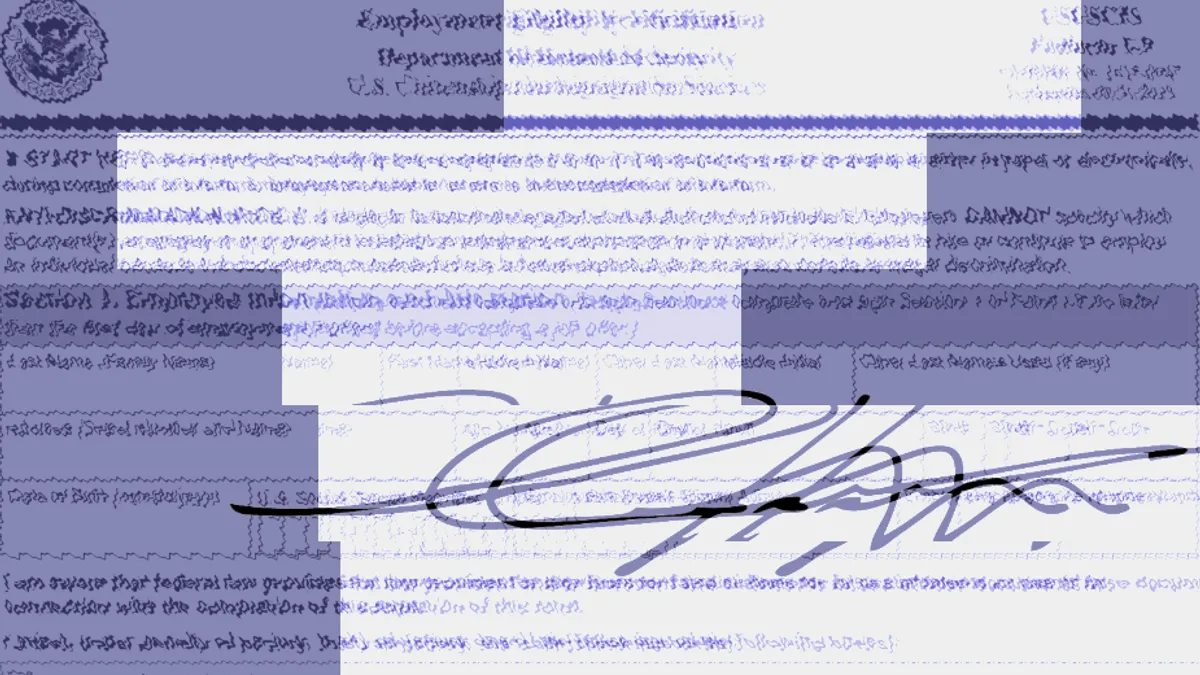The Department of Justice filed a motion earlier this month in its search-engine antitrust case against Google accusing the company of engaging in spoliation in violation of federal procedures and asking U.S. District Court Judge Amit Mehta to hold a hearing on an appropriate punishment for the company.
“Google falsely told the United States that Google had ‘put a legal hold in place’ that ‘suspends auto-deletion,’” DOJ said in its Feb. 10 motion, recently unsealed. “Indeed, during the United States’ investigation and the discovery phase of this litigation, Google repeatedly misrepresented its document preservation policies, which conveyed the false impression that the company was preserving all custodial chats.”
The government says Google encouraged its employees, whenever they discuss sensitive business information, to use its Google Hangouts instant-messaging app, which leaves the history function off by default.
When that’s left off, messages delete in 24 hours; if it’s turned on, by the chat host, it can be set to preserve communications for up to 18 months.
As far back as 2019, DOJ said, when the company had reason to believe it would be facing federal antitrust litigation, it was telling employees to avoid email, which is archived, and use chat.
“For nearly four years, Google systematically destroyed an entire category of written communications every 24 hours,” DOJ said.
Google disputes DOJ’s claim.
“Our teams have conscientiously worked for years to respond to inquiries and litigation,” a company spokesperson told The Wall Street Journal. “In fact, we have produced over 4 million documents in this case alone, and millions more to regulators around the world.”
Antitrust pressure
The antitrust case against Google was filed in 2020 and accuses the company of using payments to other companies, including Apple, to help it maintain its dominance by having its search function built into their products.
The spoliation issue is likely to be a factor in a second antitrust case, which DOJ filed against the company earlier this year, that targets Google’s dominance in online ad placements.
In a third antitrust suit, this one brought against the company in 2020 for the way it treats third-party apps in its Google Play store, plaintiff Epic Games also raised the spoliation issue.
“Google chose not to change the setting" for auto-delete, the company said in a filing last year.
Apart from Google, the issue of self-deleting apps has become a pressing concern throughout the federal government and in the courts.
The judge overseeing Sam Bankman-Fried’s FTX fraud case earlier this month, for example, slammed the defendant’s use of Signal, an encrypted, auto-deleting chat app, as a violation of his bail package. And after the Securities and Exchange Commission busted banks for their use of the apps in violation of record-keeping rules, some of the banks clawed back employee pay to cover the cost of the penalties.
Internal policy
In Google’s search-engine case, the company is accused of training its employees on the benefits of the auto-delete feature in its app.
“One training document explained that ‘off the record’ chats are ‘[b]etter than sending [an] email’ [because they’re] ‘not retained by Google as emails are,’” DOJ said.
One of the agency’s concerns is that a number of employees who are likely witnesses in the case are believed to have used the app to discuss matters that are expected to be relevant.
For example, DOJ said, “Prabhakar Raghavan, a likely trial witness and head of Google Search, wrote in April 2019 that he and likely trial witnesses Ben Gomes and Hiroshi Lockheimer had used ‘a “history off” chat’ in discussions about ‘how Chrome has affected our query volume.’”
The auto-deleted messages violate Google’s own internal record retention policy, which the company shared with DOJ in response to a 2019 inquiry.
“The policy states that ‘[a] legal hold suspends all deletion procedures in order to preserve appropriate records under special circumstances, such as litigation or governmental investigations,’” DOJ said, quoting from the company's policy.
Despite that policy, it was only when the company learned earlier this month that DOJ was going to file the motion to penalize its record keeping that Google changed its policy to permanently set the history function to on, the agency said.
“Amazingly, Google’s daily spoliation continued until this week,” said DOJ, referring to earlier in February.
As part of its request that the company be penalized for violating record keeping rules and that an evidentiary hearing be set to determine the penalty, the agency wants Google to be forced to provide further information about employees’ history-off chat practices, through written declarations and oral testimony.



















